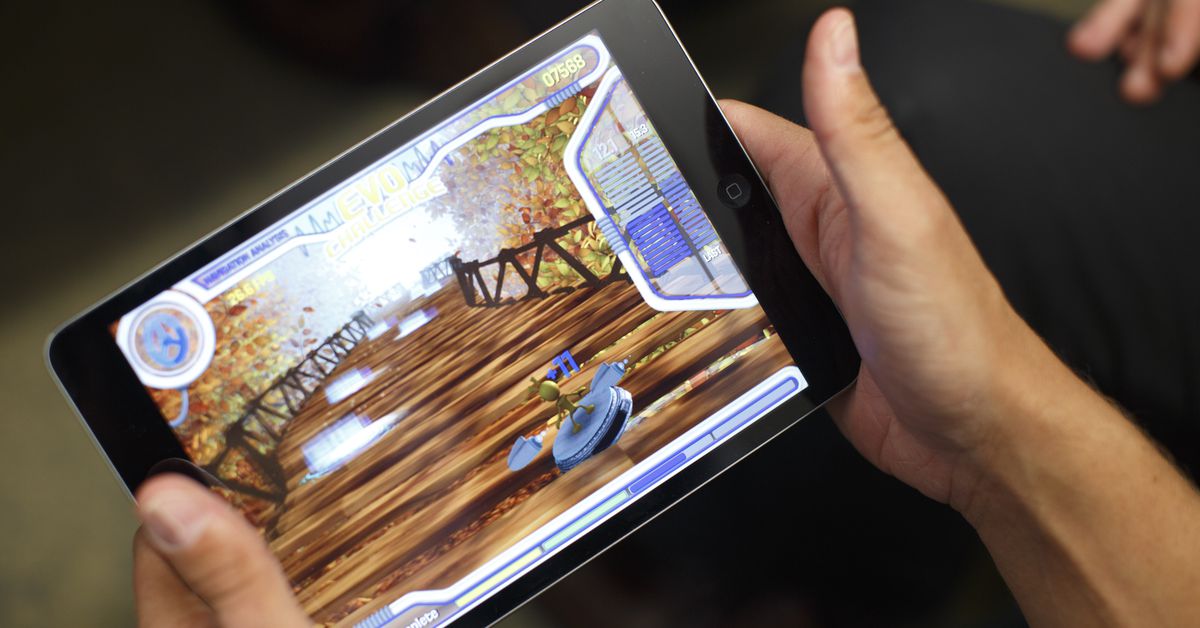Doctors are testing a prescription video game for COVID-19 ‘brain fog’
Source: The Verge added 19th Apr 2021A research team is testing a prescription video game to see if it can help people who have lingering memory and attention problems after recovering from COVID-19. Many people who survived the disease say that they’re often confused and have difficulty focusing, and research studies show that the symptoms can stick around for months after they recover.
Faith Gunning, a neuropsychologist at Weill Cornell Medicine in New York, thinks the EndeavorRX video game might be able to treat some of those symptoms. The game, made by Akili Interactive, made history last summer when it became the first video game to get the Food and Drug Administration’s sign-off to be prescribed as a medical treatment. It’s cleared as a treatment for kids between the ages of eight and 12 with ADHD.
But Gunning thinks it could help other groups of people. “I was already interested in the game,” she says. Then, she started to see the signs that people who had COVID-19 might be struggling with some of the same symptoms the game can target. She’s launching a study to test if it can help those patients. One group of people who had COVID-19 and have cognitive problems will play the game, and the study will check if their symptoms improve more than a group of COVID-19 survivors with similar symptoms who don’t play the game.
“We need more interventions in general, in cognitive and mental health, that we can get out into the community,” Gunning says.
The Verge spoke to Gunning about why the game, if it proves to be effective, could be one good strategy.
This interview has been lightly edited for clarity.
What sorts of cognitive issues are you seeing in people who have had COVID-19?
We did a study on patients following an infection with COVID-19. I’m going to give the caveat that these are individuals who required hospitalization and had rehab before they were discharged home. So these were individuals who had moderate to severe COVID-19 — so it’s not representative of the general population. What we found is that a very high percentage of individuals had disturbances that ranged from mild to severe in their cognitive function.
We found a pattern that included things like disruption in attention and in the ability to do more than one thing at once. We found a high percentage had difficulty with working memory, which is the ability to hold information in your head while doing something else. All of these are skills that are important for everything we do.
Why were you interested in the Akili Interactive video game?
The game has always intrigued me. I’d already been working with the video game for a few years. It really does target an important function: the ability to do more than one thing at a time. It improves it, and we’ve seen the game improve it in people with ADHD, in older adults, and there’s some indication it helps in people with multiple sclerosis.
It targets these really important cognitive skills, and it’s really engaging. One of the issues that you often find with cognitive interventions is that, frankly, they’re boring. So people won’t do them. And if people won’t do them, they’re not going to work.
What has your non-COVID-19 research on this video game found?
We’re using it in older adults who have some cognitive issues and middle-aged and older adults who have depression and some other cognitive issues. And what we’ve found is that those people do show changes in their brains. We showed that there’s improvement in connectivity within brain networks that support attention and executive skills, and we have some preliminary data showing improvement in mood.
Why do you think this could help COVID-19 survivors?
We don’t think everybody who’s recovering from COVID-19 needs cognitive intervention. But there is enough data that suggests that a significant number of people who have suffered from COVID-19 will have some cognitive issues. These disturbances aren’t just specific to people recovering from COVID-19; we see them across a lot of conditions that impact the brain. I think if we can improve those functions, regardless of what’s causing them, we can improve their daily lives.
We’re looking for two main outcomes: cognitive skills and daily functioning. Because really, that’s the goal. We’re talking about COVID-19 disrupting people’s ability to function in their everyday lives.
A video game is also scalable. It’s something that can be given to lots of people. We need things we can get out into the community. Even if it’s a small subset of people who had COVID-19, the sheer number of people who had COVID-19 means we need interventions that are effective and can be disseminated widely. We’re not going to have the workforce to have one-on-one cognitive intervention for all the people who were sick.
brands: First It New One other Sick Team the game WAS media: 'The Verge' keywords: Memory
Related posts
Notice: Undefined variable: all_related in /var/www/vhosts/rondea.com/httpdocs/wp-content/themes/rondea-2-0/single-article.php on line 88
Notice: Undefined variable: all_related in /var/www/vhosts/rondea.com/httpdocs/wp-content/themes/rondea-2-0/single-article.php on line 88
Related Products
Notice: Undefined variable: all_related in /var/www/vhosts/rondea.com/httpdocs/wp-content/themes/rondea-2-0/single-article.php on line 91
Warning: Invalid argument supplied for foreach() in /var/www/vhosts/rondea.com/httpdocs/wp-content/themes/rondea-2-0/single-article.php on line 91
